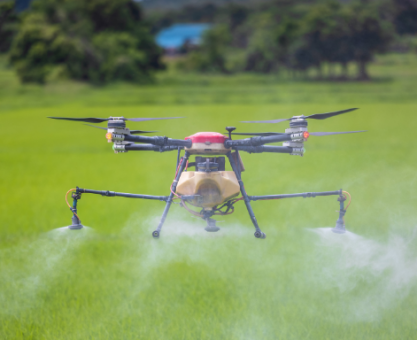Executive Summary
-
Sustainable agriculture in emerging markets presents significant investment opportunities driven by growing global demand for food and climate resilience.
-
Investors can benefit from diverse sectors, including organic farming, precision agriculture, and agri-tech innovations.
-
Challenges include regulatory risks and market volatility, but strategic approaches can mitigate these concerns.
-
Successful case studies and expert insights illuminate pathways for profitable and impactful investments in this sector.
Introduction
As the global population rises and climate change impacts intensify, sustainable agriculture in emerging markets has become indispensable. Investors eyeing this sector are poised to benefit from both financial returns and environmental impact. This article explores why sustainable agriculture investments in emerging markets are a compelling opportunity, highlighting the potential benefits, challenges, and strategic insights necessary for a successful engagement.
Definitions / Context
Sustainable agriculture refers to farming practices that meet present food needs without compromising the ability of future generations to meet theirs. These practices incorporate environmentally friendly methods and technologies to enhance farm productivity, resilience, and ecosystem health.
Emerging markets are developing economies undergoing rapid industrialization and growth. Countries such as Brazil, India, and Kenya are increasingly becoming hotspots for agricultural innovation, policy reform, and private investment, making them fertile grounds for sustainable agriculture ventures.
Benefits / Pros
-
Growing Demand
Emerging markets play a critical role in supplying sustainable food sources to meet rising global food consumption. -
Diverse Opportunities
Investors can explore organic farming, smart irrigation, climate-resilient crops, and scalable agri-business models. -
Government Support
Many emerging economies offer grants, subsidies, and favorable policies to attract investment in sustainable agriculture. -
Impact Investment
This sector offers dual benefits—competitive financial returns and measurable positive social and environmental impact.
Risks / Cons / Challenges
-
Regulatory Risks
Different countries enforce varying levels of regulation, which can complicate investment decisions. -
Market Volatility
Emerging markets are often exposed to political instability, inflation, and currency fluctuations. -
Infrastructure Limitations
Lack of cold storage, transportation networks, and digital connectivity can restrict scalability and efficiency.
How to Invest in Sustainable Agriculture in Emerging Markets
-
Research and Analysis
Understand the political, legal, and environmental frameworks of target markets. -
Partner with Local Experts
Local partners help navigate cultural nuances, supply chains, and compliance issues. -
Assess Impact and Risks
Use ESG metrics to balance risk management with measurable outcomes. -
Choose Investment Model
Select from direct investments, joint ventures, impact funds, or green bonds. -
Monitor and Adapt
Maintain flexibility to pivot with evolving markets, technologies, and policies.
GreenHarvest, a sustainable agricultural venture in Brazil, transformed degraded land into productive organic farms. Through partnerships with local cooperatives and the use of conservation farming techniques, the project achieved a 20% ROI over three years while reducing carbon emissions by 35%.
– GreenHarvest Initiative in Brazil
Expert Tips / Strategic Insights
Epiidosis recommends diversifying across geographies and agricultural verticals to reduce portfolio concentration risks. Technological integration—especially in agri-fintech and crop monitoring—can dramatically increase transparency and ROI. Always adopt a long-term lens when investing in regenerative agriculture and food security ecosystems.
Tools / Resources / Calculators
-
Agri-Tech Platforms
Tools like FarmLogs and CropIn offer real-time monitoring and predictive analytics for farm performance. -
Sustainable Investment Funds
Options like the Calvert Global Water Fund and Triodos Sustainable Agriculture Fund offer curated exposure. -
Market Intelligence
FAO, IFPRI, and World Bank reports provide insights into emerging market trends and investment climates.
Conclusion
Sustainable agriculture in emerging markets is more than an ethical investment—it’s a strategic move with long-term potential. As global food demand surges and environmental concerns deepen, well-positioned investors can capture both financial growth and positive impact. With local partnerships, sound strategy, and adaptive risk management, the future of farming can be both profitable and responsible.























